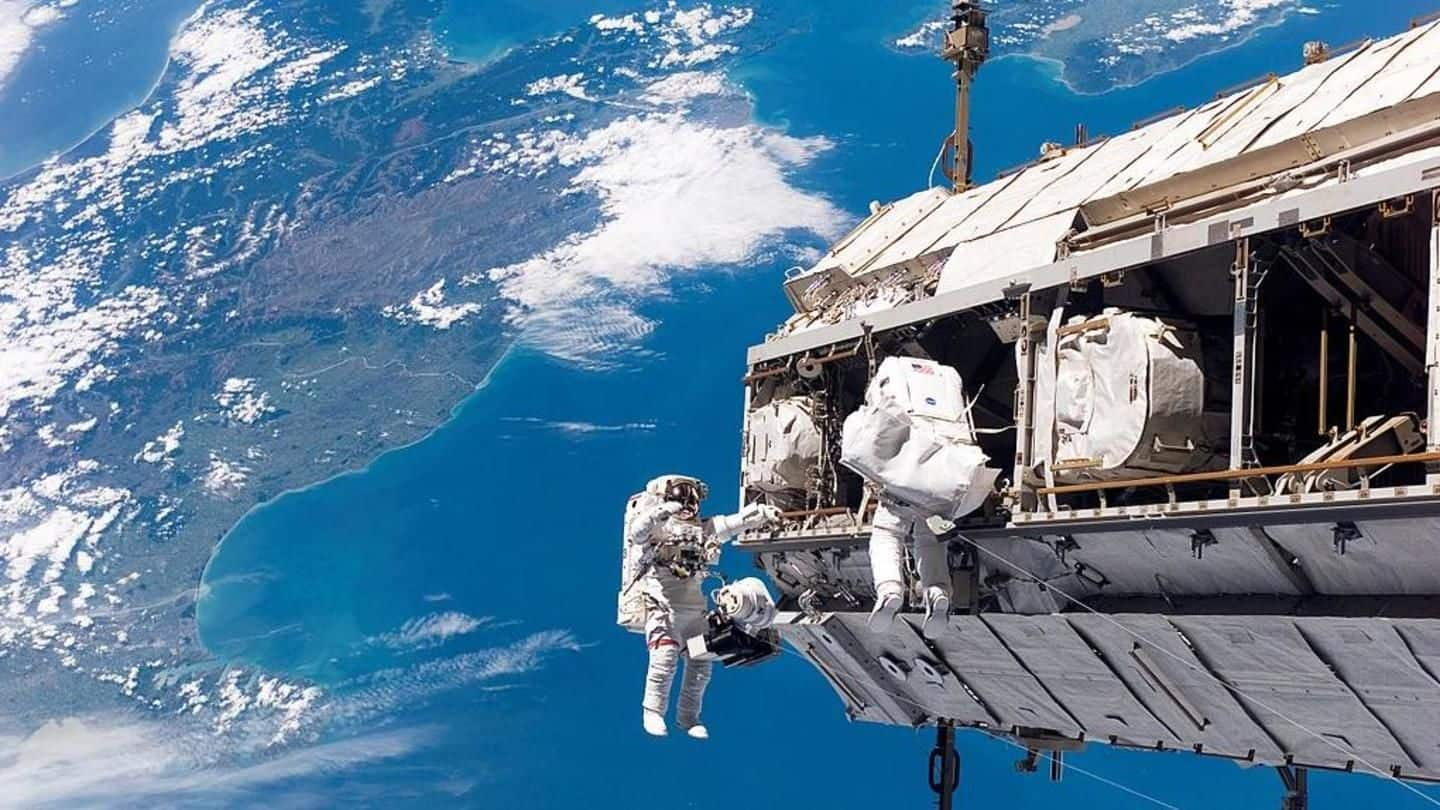
Deteriorating ties could mark the end of US-Russia space cooperation
What's the story
On Thursday, two American astronauts and one Russian cosmonaut - Drew Feustel and Ricky Arnold from NASA, and Oleg Artemyev of Roscosmos - returned to Earth from the International Space Station, wrapping up a 197-day-long mission. Yet, while they were all smiles back on Earth, deteriorating US-Russia ties threaten to ruin one of the last remaining areas of US-Russia cooperation - space. Here's more.
US-Russia ties
US-Russia ties are at their worst since the Cold War
From around 2014, US-Russia ties have been at their worst since the tense days of the Cold War. Since the 2014 Ukraine crisis, the US has kept on imposing travel bans, asset freezes, and other restrictions on finance and trade on hundreds of Russian individuals and companies for creating trouble beyond Russian borders, and for meddling with the 2016 US Presidential elections.
Sanctions
Washington has been piling sanctions on Moscow for alleged 'wrongdoings'
The first round of sanctions came in 2014 during President Barrack Obama's time at office, when Russia annexed the Ukrainian peninsula of Crimea, and extended its support to separatist movements in Ukraine. Then, after US intelligence agencies concluded that Russia influenced the 2016 US Presidential elections, more sanctions were added. Further sanctions were added in April this year, and Trump plans on even more.
Space exploration
NASA continued cooperation with Russia despite sanctions
Yet, amid this searing tension between the two superpowers, space exploration was an area that remained relatively untouched. In 2014, even while sanctions had been imposed on Russia, NASA renewed a contract with Russia for ferrying US astronauts to the ISS aboard Russian-made Soyuz spacecraft. The renewal cost NASA $457.9mn, and the ISS continued to be a site of cooperation...up until August this year.
The hole
A hole in the fabric of US-Russia space cooperation
On August 29, a Soyuz spacecraft docked at the ISS started losing oxygen and experienced cabin pressure drops. None of the crew on board - three Americans, two Russians, and a German - had an explanation, but the leak was ultimately traced to a 2mm hole in the spacecraft, and was sealed. Notably, photographs of the hole uploaded publicly showed unmistakable drill tracks.
Media
Roscosmos head Dmitry Rogozin hints at sabotage
Although NASA called for calm, the media speculated on the origin of the hole, with explanations ranging from a collision with space debris, to sabotage. In early September, a Russian publication reported that the hole was a manufacturing error. Within hours, Roscosmos head Dmitry Rogozin announced that collision with space debris had been ruled out, and that possibility of sabotage was being explored.
Sabotage?
Russia claims the hole wasn't a manufacturing error
Despite NASA and Roscosmos issuing a statement in mid-September on jointly conducting a probe, Rogozin, on October 1, declared in a televised broadcast that a manufacturing defect had been ruled out by a Russian probe. He added that another commission was working to determine whether the hole had been drilled on Earth or in space. His comments implied sabotage.
NASA's response
Despite Rogozin's subtle allegations, NASA has given a reserved reply
In spite of Rogozin's subtle allegations, NASA was relatively reserved in its response. In a recent statement, NASA said that the ruling out of a manufacturing error "does not necessarily mean the hole was created intentionally or with mal-intent. NASA and Roscosmos are both investigating the incident to determine the cause." Meanwhile, both American and Russian astronauts have vehemently denied any involvement.
Reactions
ISS commander dismisses suggestions of sabotage
ISS Commander Drew Feustel, under whose command the hole had surfaced, said that the suggestion that the crew was involved in sabotage was "embarrassing". Experts have also raised their doubts about sabotage, saying that drilling a hole in the microgravity environment of the ISS would be a massive risk, in addition to being a fairly challenging task.
To conclude
Bitter politics and personal vendetta could ruin US-Russia space cooperation
Despite the aforementioned issues regarding the possibility of sabotage, Rogozin seems unconvinced. It should be noted here that Rogozin, who was placed under US sanctions in 2014, might have an axe to grind with the US. Indeed, if a personal vendetta or bitter US-Russia political relations come into the picture, it could spell the beginning of the end of the long-enduring US-Russia space cooperation.